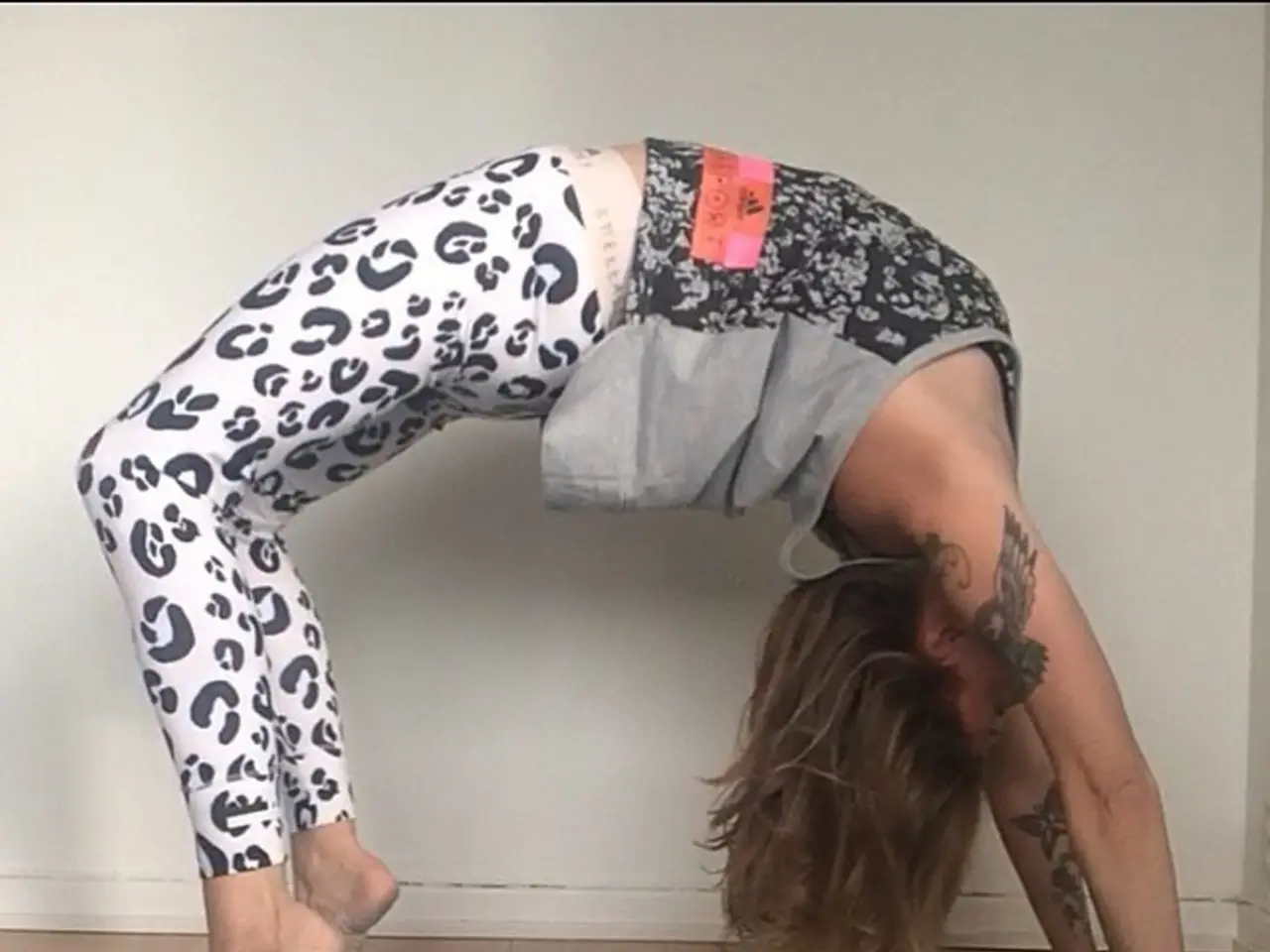Exercise Routine Encompassing Complete Physical Conditioning Through Yoga Practice
Yoga, an ancient practice with roots in Indian philosophy, has gained widespread popularity as a form of exercise embraced by millions worldwide. This mind-body practice offers a comprehensive workout that harmoniously blends flexibility, strength, and mindfulness, making it an invaluable addition to any fitness routine.
Incorporating yoga into a workout regimen can significantly boost physical fitness. By enhancing flexibility, muscle strength, balance, and cardiovascular endurance, yoga promotes range of motion, reduces injury risk, and builds strength without sacrificing flexibility, which complements other fitness activities[1][3][5].
For instance, the Plank Pose (Phalakasana) builds core strength and stability, while Downward-Facing Dog (Adho Mukha Svanasana) is a full-body stretch that strengthens the arms and shoulders. Chair Pose (Utkatasana) strengthens the legs, core, and back, mimicking a squat position, and Warrior II (Virabhadrasana II) enhances lower body strength and stability, improves balance, and coordination[1].
Yoga also offers numerous mental health benefits. It helps reduce stress by lowering cortisol levels, calming the nervous system, and balancing emotions. Regular practice aids in managing symptoms of depression and anxiety through the integration of meditation and mindful breathing[1][2][5].
Tree Pose (Vrksasana) improves balance and concentration, strengthens the legs and core, and Yoga's mindful approach deepens mental clarity, emotional regulation, and resilience, which supports recovery and a calmer mind during physical training and everyday life[2][5].
Combining yoga with strength training can further improve muscle recovery and enhance overall performance. Aim for 2-3 yoga sessions per week to complement other workouts and allow the body to recover[1].
Incorporating yoga into your exercise routine can lead to a more balanced, effective, and fulfilling workout regimen. By fostering a deeper connection between mind and body, yoga improves mental health and emotional well-being, making it an essential component of a holistic approach to fitness and overall health improvement.
[1] Mayo Clinic. (2021). Yoga: What You Need to Know. https://www.mayoclinic.org/healthy-lifestyle/fitness/in-depth/yoga/art-20045821 [2] National Centre for Complementary and Integrative Health. (2021). Yoga in Depth. https://www.nccih.nih.gov/health/yoga/introduction [3] American Osteopathic Association. (2021). The Benefits of Yoga. https://www.osteopathic.org/osteopathic-health/wellness/yoga-and-osteopathic-medicine/ [4] Harvard Health Publishing. (2021). Yoga for mental health. https://www.health.harvard.edu/mind-and-mood/yoga-for-mental-health [5] Cleveland Clinic. (2021). Yoga: A Mind-Body Approach to Wellness. https://my.clevelandclinic.org/health/articles/14946-yoga-a-mind-body-approach-to-wellness
Read also:
- Explored the Popular Health Assessment with a Queue of 100,000 Aspiring Participants - Here's My Unadulterated Opinion
- Hearing impairment condition: Recognizing symptoms and management approaches
- Signs of Cataracts Emergence: Impact on Vision and Further Details
- Thyroid Cancer Type: Papillary (PTC) - Symptoms and Further Details





